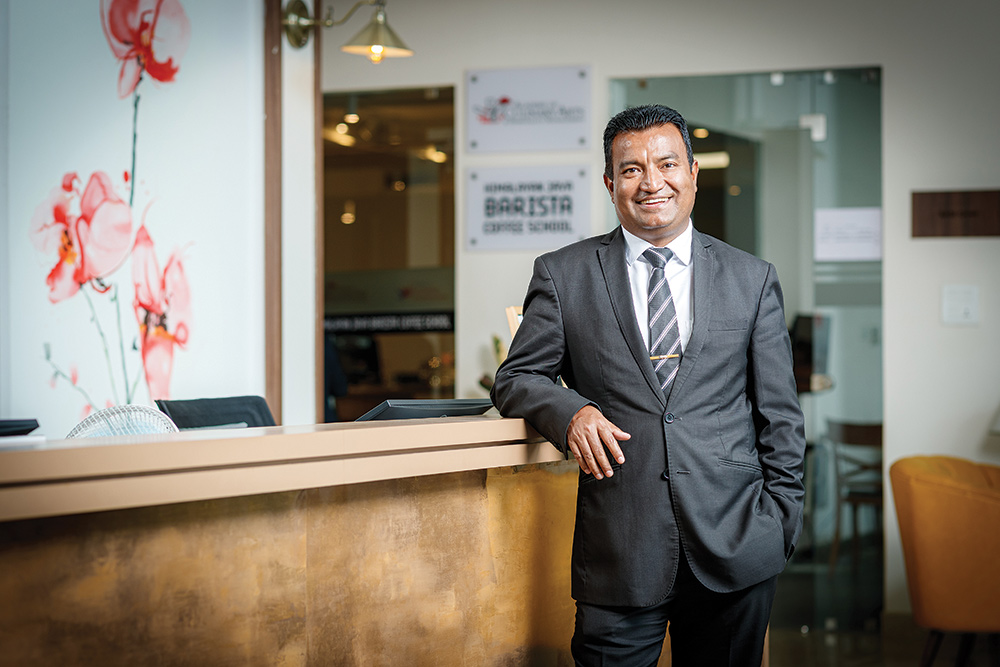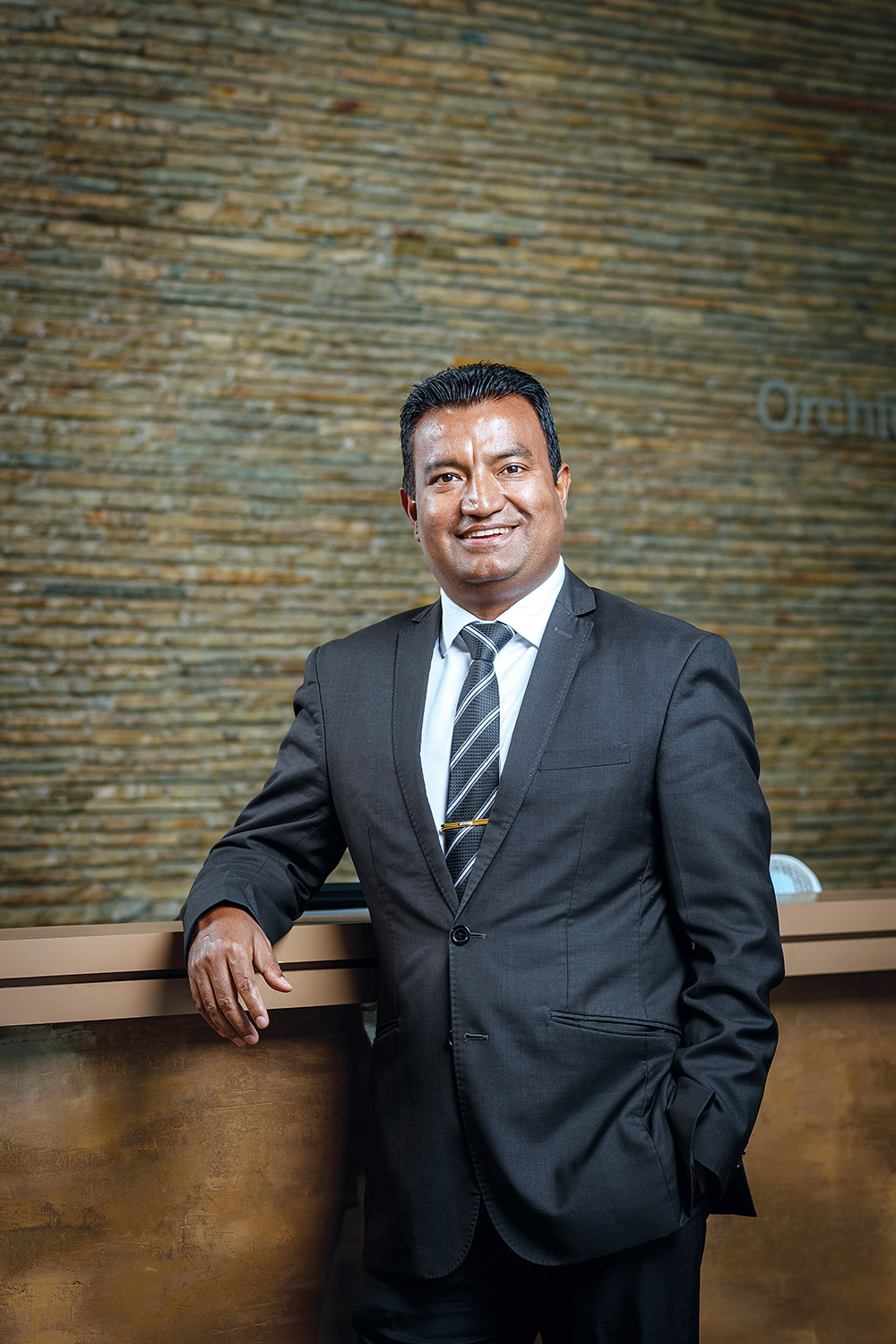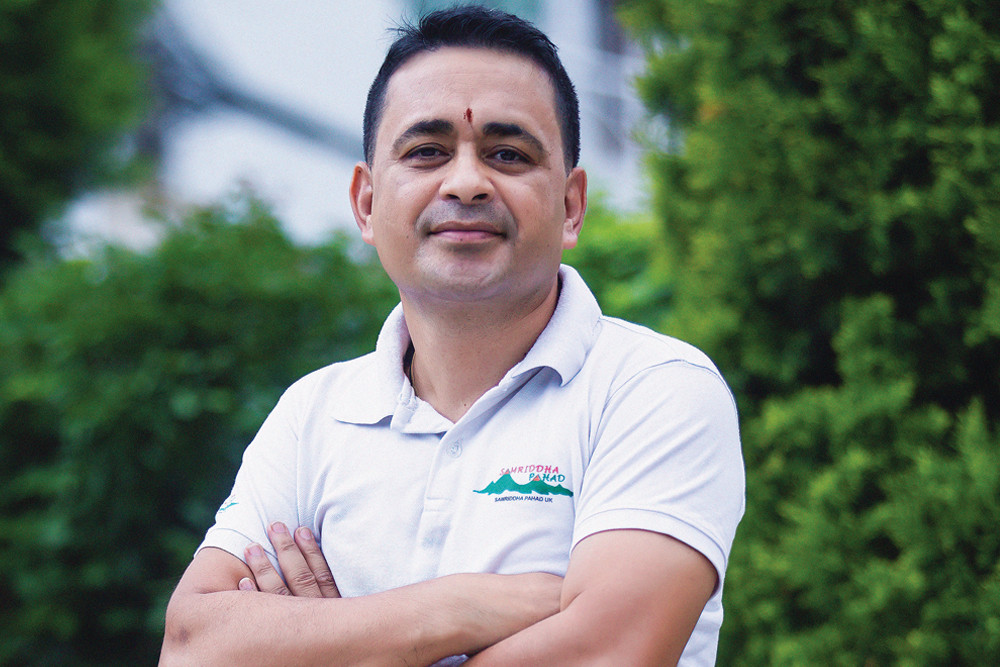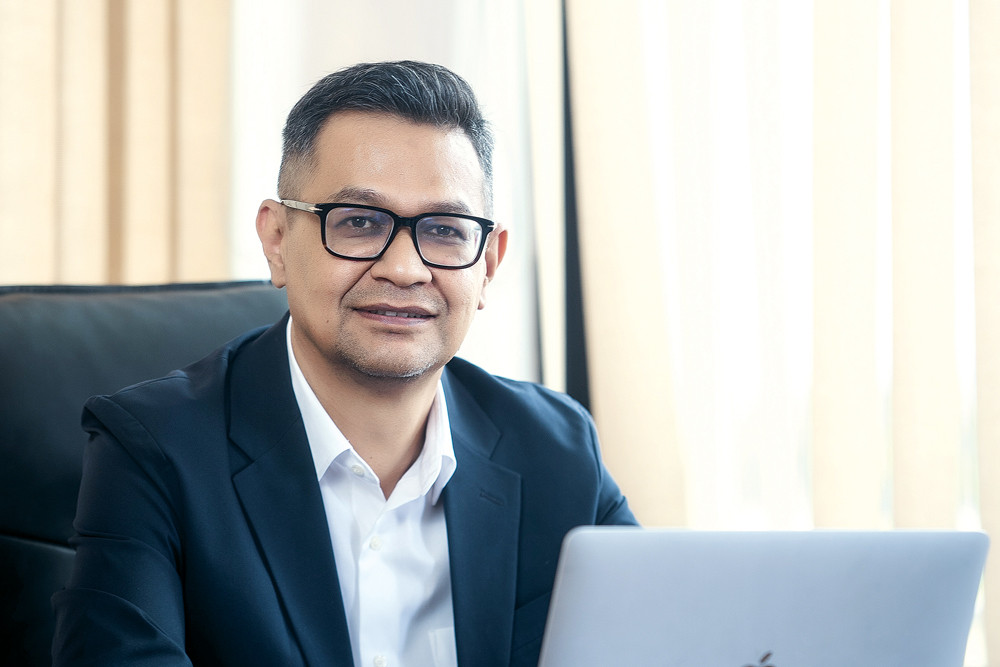
Ashesh Maharjan
Founder, Academy of Culinary Arts (ACA) and the Centre for Leadership and Entrepreneurship College
With a keen interest in the hospitality and tourism sectors, Ashesh Maharjan is the Founder of Academy of Culinary Arts (ACA) and the Centre for Leadership and Entrepreneurship College founded in 2010 and 2021 respectively. Academy of Culinary Arts is one of the most successful colleges in the country that provides Bachelors in Hotel Management (BHM) and Diploma in Culinary Arts. “We are known for our academic excellence and social commitment to creating aspiring hoteliers. Students from ACA have been placed in various reputed hotels, restaurants and cruise lines across the world,” Maharjan proudly shares. The Centre for Leadership and Entrepreneurship College aims to build the next generation of business leaders and entrepreneurs in the hospitality and service industry. Maharjan believes that, as a leader of both institutions, his role is to identify opportunities as well as areas for improvements to scale the initiatives he is spearheading. In this edition of Business 360, we spoke to Maharjan to learn about what leadership means to him.What’s your definition of a leader?
This is a very difficult question and the answer may vary from person to person. If your actions inspire other individuals or even yourself, you may already be a leader. Leadership is not just a title like what we are aware of. In terms of well-organised companies, it is not possible for everyone to fit into the title either. For me personally, a leader can empathise with whoever they are talking to and does not mind encouraging others to be better versions of themselves even after getting rejected multiple times.Is leadership ‘in-born’ or ‘acquired’?
This has been up for debate for a long time. I would say both. I would not disregard people who are very lucky and come with the skills and talent; as we say, ‘Huney biruwa ko chillo paat’ in Nepali. However, leadership can also be nurtured. But the brutal fact as of today is that the process of nurturing is very less. People aren’t paying much attention to nurturing leadership. Many expect changes after one lesson or one lecture or one episode, but that is not possible. It is a lengthy process where the mentors and leaders such as our parents, siblings, neighbours, teachers and our superiors are willing to endure the process. To answer the question, leadership can come naturally to a few and it can be nurtured by a larger group.Who comes to your mind as ‘an ideal leader’?
Quite a lot of people come to my mind since social media has recently started becoming flooded with lots of leaders. I see innovation in Elon Musk, humbleness in Sundar Pichai, and in Ratan Tata, I see humanity. I even learn from people like Donald Trump to be open minded, vocal and without fear. Talking about Sadhguru or any other spiritual leaders, what I like most about them is how they keep spreading wisdom and positivity as much as they can. There is nobody in particular that I admire as a leader. I admire all leaders for their acts and am inspired by many despite their titles.Could you share with us any incident that tested your leadership ability?
I have been running this organisation for 12 years and I recently realised that most of the time, I was blaming other people. I kept wondering why people were not performing to their best despite us offering one of the best facilities. It took almost 17 years since being in business for me to realise that other people are not the problem. The issue probably was the process of our working, or I may not have been using my leadership skills rightly or I did not do enough from my side. I discovered that an individual is not a problem but the process of working is. As a leader of this organisation, I cannot just show the direction we need to move forward in and lie back. Instead, I need to create an environment where people willingly come every day with enthusiasm and belief that they can thrive, are not judged or punished for their mistakes, and can open up about their feelings. This realisation itself was the biggest lesson and where I felt my qualities as a leader were tested.
How important is it to have a good team to work with?
A good team is extremely important. However, I don’t believe in hiring the best of the best. Instead, I believe in hiring people who believe in your vision and treating them so well that they thrive and end up becoming contributors to your organisation. Through this, the greatest team can be created. A team which can create magic and outdo every benchmark or standard can be groomed and nurtured.When should a leader hand over the leadership position?
A practice we are trying to do in this organisation is that any individual in a leading position will be nurturing two subordinates so that they can go on a two-month-long vacation without having to worry about work. This ensures that the overall performance of the organisation is not affected if a leading individual is unavailable for a good or bad reason. A definite term should not exist. There can always be better titles. Great titles can be given to people who have worked in a company for years or even their lives. Why can’t we have senior CEOs or Chief CEOs instead of having one CEO in one company? It is definitely something to think about. There is no doubt that people learn different things in different places.How did the pandemic affect your organisation?
We fall under the category of an educational institution. Based on who we are and what our primary goal is, we come from a place where we want our students to become better human beings. We encourage our students to become better versions of themselves and also provide an environment to implement the same. Though we started as a culinary art institution and hospitality institute, we later added MBA programmes and further plan to add BBA programmes as well. All this while we won’t move away from hospitality, yet we aren’t limited to it. Speaking of how the pandemic affected us. It definitely affected us financially, but not much intellectually. Before the pandemic, most people complained about not having enough time. However, because of the pandemic people got all the time to read books, listen to podcasts, and watch videos more than they had ever done. Some even discovered new interests. Other than financial issues, I don’t think we were affected that much. We did have human losses but I feel even that is not much compared to the ongoing world. Just talking about the road accidents in Nepal, I think accounts for more than Covid. The lockdown was like a blessing to people to know their family better and to discover new hobbies. I think the losses in comparison to that are very less. I am not disregarding the pandemic, but focusing on the best we can get from the situation. We got to learn a lot and also had an ample amount of time to connect with family and friends. If Covid did not exist, it would have probably taken another 8-9 years for education to be virtual on this side of the world. I see beauty in this.What do you consider your most significant accomplishment as a leader?
The day I realised people were not the problem rather I as a leader am the problem shifted my paradigm. I am more passionate about giving more honour than instructions to people. I feel that that particular moment or breakthrough I am yet to experience in life and once I do experience it, it will have an immense effect on me. I am very confident that this will help me to discover more.How can a leader prepare for the unknown?
Once the person is already taking on the role with diligence, the answer will come anyhow. You also have to prepare yourself by reading books, listening to people, speaking and being willing to take feedback. READ ALSO:
Published Date: July 9, 2022, 12:00 am
Post Comment
E-Magazine
RELATED Leadership


.jpg)


.jpg)